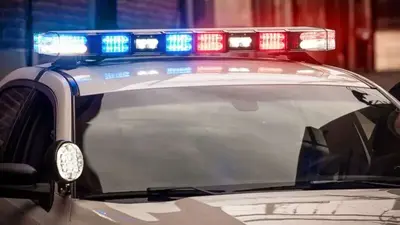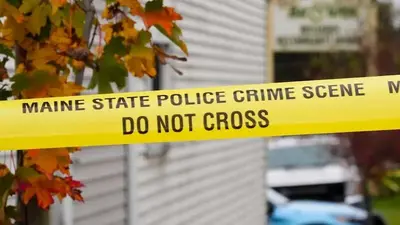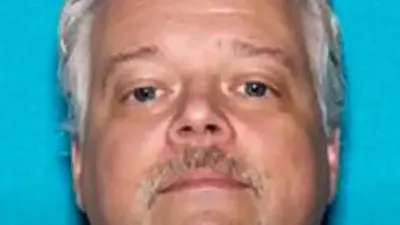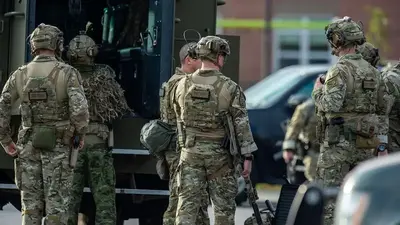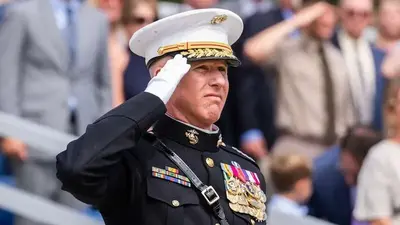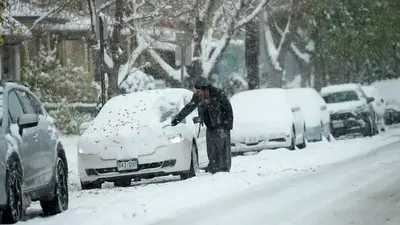US News
'Nobody ever came': American woman released same day as Griner recounts horror of Russian captivity
An American woman held in captivity in a Russian prison for most of this year says she was assaulted by an inmate and left without contact to the outside world.
"Nobody ever came," Sarah Krivanek said.
Krivanek, who spoke to ABC News in an exclusive sit-down interview this week, was released Dec. 8, the same day that WNBA star Brittney Griner was released from Russian captivity.
She said she is suffering PTSD and malnourishment she endured but had to check herself into a local hospital upon arrival back home. She is currently working with a trauma specialist.
Watch the interview with Sarah Krivanek on "Good Morning America" on Thursday
In a statement to ABC News, the State Department said, "The U.S. Department of State and our embassies and consulates abroad have no greater priority than the safety and security of U.S. citizens overseas."
The statement added, "U.S. Embassy Moscow provided assistance on the case of U.S. citizen Sarah Krivanek for more than a year. We monitored the case throughout the process, including attending deportation hearings. We coordinated with Russian authorities to facilitate Ms. Krivanek's safe return to the United States."
Krivanek disputes that claim and says that she was put on a commercial flight by deportation center agents from Russia and had to sign paperwork that required her to repay the U.S. government for the travel costs. She said she was given only $100 in cash and was forced to travel alone. She also said didn’t hear from anyone from the U.S. government throughout her imprisonment and after her arrest at the airport only met officials in her single deportation hearing.

Becoming a 'sacrifice'
Krivanek, 46, had moved to Russia in 2017 to teach English. Fluent in both languages, she said she ended up enjoying a successful career teaching at elite schools in Moscow. Following a broken wedding engagement, she briefly lived with roommates, one of whom was a man who Krivanek said beat her. In December 2021, she was arrested and detained for attacking him with a knife that she said she used to defend herself.
A trial in February without a jury resulted in a 15-month sentence to a Russian penal colony, a verdict even her attorney told her was extreme for the circumstances, she said. Krivanek said she believes she became "a sacrifice" for the Russians to use to send a warning to the U.S. about intervening in the conflict.
"I just fell into the system... at the wrong time," she said. "Because it came on the heels of starting a war with Ukraine, they used this as leverage."
Vanquished hope
In the penal colony, located in the remote Oblast region of Russia, Krivanek said she faced harsh conditions: The colony consisted of "old, run-down buildings from the Stalin era" where she said she was forced to work in an asbestos-laden factory.
MORE: Brittney Griner release: How the White House says it happened
There, she sewed fake flowers for use in cemeteries. Because the factory lacked air conditioning, a guard broke windows for ventilation in the summer. A small heater warmed the workers in the fall and winter months. She subsided on a diet of cabbage and bread, she said.
Being an American, she said, often made her a target among prison officials and other inmates. She said she witnessed sex trafficking, drug use and gambling throughout her entire stay.

Blocked from using the official prison phone system, Krivanek said she used a smuggled cell phone to call the U.S. Embassy in Moscow. She said her seven-minute call was redirected to Washington where she told an operator her name and where she was located. The signal was lost immediately afterward. "After that, I just had to pray and just hope that I had given them enough information to find me," she said.
"I didn't have anybody. No phone calls. No nothing. I'm left completely alone," he said.
Watching an abduction
Krivanek's situation eventually earned the attention of Russia Behind Bars, an activist group based in England that attempted to deliver items like clothing, toothpaste, and soap; representatives from the group tried to visit her, and during both visits, they were not allowed to see Krivanek in person, she said. Connecting the organization to Krivanek was Anita Martinez, whose friendship with Krivanek dates to 2008.
Martinez, who lives outside Fresno, was also the last person to talk with her friend, having watched Krivanek get arrested on camera by Russian authorities when both women were on a FaceTime conversation together.
MORE: 'We want Paul home': Family of former Marine held in Russia speaks out after Griner's release
"I froze. I didn't know what to do. I was literally in a store in Fresno... and I'm standing in the store in shock," Martinez said. "I thought, 'did she just get kidnapped? Like, what did I just see?'"
Martinez said she then began a long and difficult effort to get her friend released, which included contacting the embassy in Moscow, the State Department, and activist and media organizations. She said a State Department official told her that they were aware of Krivanek's location and were working on her release, but that they could not give her details because she didn't have permission from Krivanek to allow them to speak to her.
"No one would tell me anything," she said.
'They found me'
The adjustment back to life in the U.S. has been difficult for both women. Krivanek said she is suffering from PTSD and is also dealing with the loss of her father who died when she was in Russia. She is now living with Martinez who said she was unprepared, financially and emotionally, to help her friend make the successful transition she needs to move forward in her life.
A GoFundMe account has been established to help Krivanek pay back the U.S. government loan, and Martinez has been helping her get medical care and therapy.
Krivanek said she owes her friend her freedom: "Anita's just tough as nails. I knew that nobody could walk all over her and that if she had her mind set to something, she was going to get it."
Nine months after her arrest, on Sept. 1, Krivanek received an email in prison that changed her life. It was from Martinez, asking about her condition.
"I was just about to give up," Krivanek said. "And I got that letter and freaked out. I'm like, 'they found me. They found me.'"
-

 US News1h ago
US News1h agoFlorida Man Arrested and Charged With Planning to Bomb the New York Stock Exchange
-
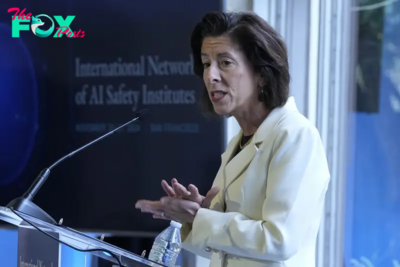
 US News12h ago
US News12h agoU.S. Gathers Global Group to Tackle AI Safety Amid Growing National Security Concerns
-

 US News17h ago
US News17h agoTexas Offers Trump Land on U.S.-Mexico Border for Potential Mass Deportations
-

 US News23h ago
US News23h ago4B Is Not the Winning Strategy to Resist the Patriarchy People Think It Is
-

 US News23h ago
US News23h ago‘Bomb Cyclone’ Threatens Northern California and Pacific Northwest
-

 US News1d ago
US News1d agoClimate Action in Trump 2.0
-
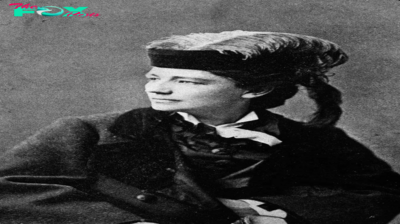
 US News1d ago
US News1d agoWhat Victoria Woodhull’s Presidential Run Can Teach Us About America Today
-

 US News2d ago
US News2d agoThese Races Still Don’t Have a Clear Winner Two Weeks After Election Day
